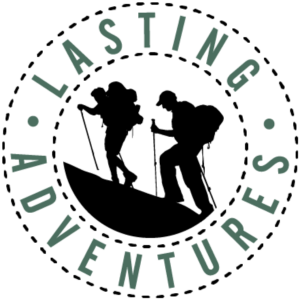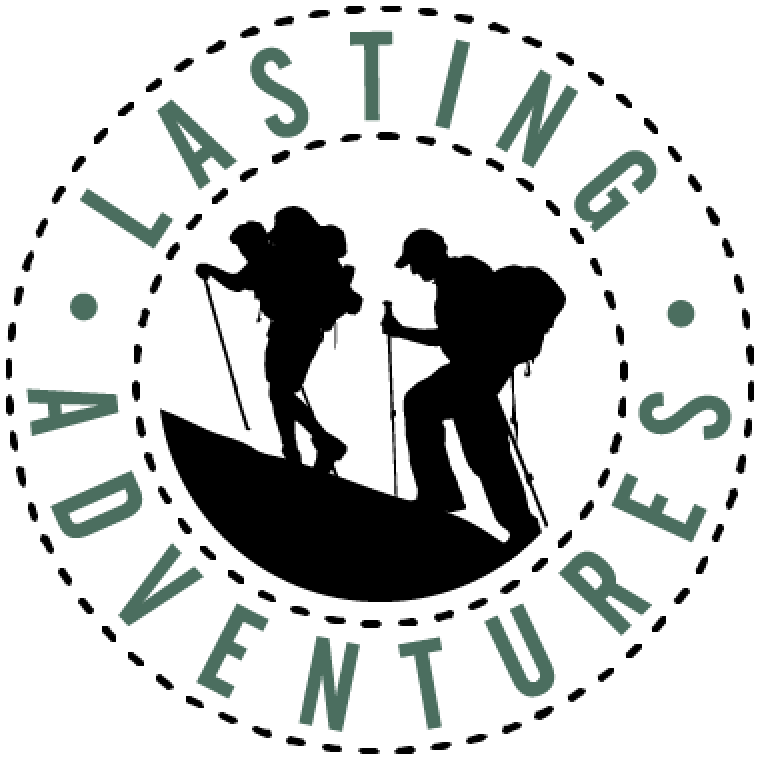At Lasting Adventures, one of our most cherished responsibilities is to be stewards of the parks and lands we love.
To this end, I had the amazing opportunity to become a Leave No Trace Master Educator while backpacking through Saguaro National Park last week. The course focused on principles to minimize our impact and educate others while adventuring through the wilderness. I am excited to share this knowledge by certifying our entire staff and all participants on our Lasting Adventures Junior Guide Program as Leave No Trace trainers.
Here are some highlights from each of the principles we covered this weekend!
1) Plan Ahead and Prepare – On the first day, we studied the regulations and protocols of the parks and gathered the necessary equipment including bear mace in the event we might see the rare bear in the Rincon Mountains. Maybe they weren’t as rare as we thought… More on this below!
2) Travel and Camp on Durable Surfaces – When we arrived at our camps we studied the impacts left by previous visitors such as “bedroom suites” or small, unofficial campsites created on the outskirts of already impacted, official sites. We also studied “social trails” created by campers creating shortcuts between points of interest and discussed the consequences of these impacts such as improper water drainage and added damage to the delicate foliage in the area.
3) Dispose of Waste Properly – This is where we talked a lot about poop! More specifically, the importance of digging your catholes the appropriate 6-8 inches deep to ensure that there is enough organic material to help break it down and packing out your TP to avoid the always disgusting blooms of “toilet paper flowers,” or, even better, don’t use toilet paper at all! Try wiping with smooth sticks, rocks, snow, leaves, etc… Maybe sounds a little wild, but it’s worth giving it a try to help mother nature stay clean and pristine! Give it a try!
4) Leave What You Find – While cool rocks, sticks, flowers and arrowheads are indeed awesome finds while hiking, leave them for the next visitor to experience as well. We often fail to consider the larger impacts that can occur as a result of removing something small from the environment. While scouting some game trails, we came upon the lower vertebrate and back leg of a large cat (either bobcat or mountain lion) but of course, left the remains where we found them. We also studied the scat of various animals including two fat stacks of bear scat!! Luckily, this bear seemed mostly vegetarian judging by the amount of berried and lack of fur mixed in. This was a relief… We of course left the scat where we found it.
5) Minimize Campfire Impacts – While sitting around a fire is a classic camping activity, fires can leave an enormous impact on the environment –especially if they get out of control. We learned to keep our fires small and not to burn anything but wood! Especially not poopy TP! We also practiced building zero impact “mound fires” by stacking sand on top of a tarp for our fire base then dissipating the sand afterward.
6) Respect Wildlife – We all love to see wildlife, but for our own safety as well as the safety of the animals, we should always maintain a safe distance and store our food properly –especially in bear country. It’s ironic to consider that a bear has never killed anyone in Yosemite National Park, yet multiple bears have been euthanized as a result of coming into camps because people have improperly stored their food. Do your part to protect our mighty and majestic wildlife!
7) Be Considerate of Other Visitors – It may be tempting to blast music when you get to camp or have a rowdy good time but keep in mind, many visitors are coming to the wilderness to experience the peace and quiet of nature. Don’t be selfish by impeding on someone else’s wilderness experience!
These just scratch the surface of everything I learned this week, and I encourage everyone to do some more research on each of these topics or join Lasting Adventures for our 27-day Junior Guide Leadership Expedition which will teach Leave No Trace Trainer principles and a Wilderness First Aid Course as well. Have a great time in all your wilderness outings and remember leave no trace but footprints! Happy Hiking!
Otto Ross is the Program Director at Lasting Adventures. He recently completed his Master Education course provided by the Leave No Trace organization.

